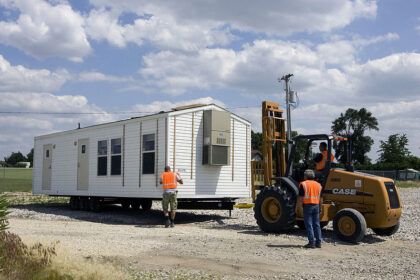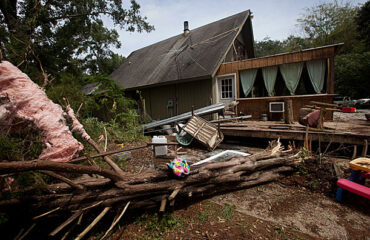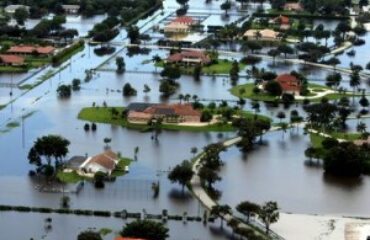
FEMA is bringing manufactured housing to NJ, NY hardest hit by Superstorm Sandy
Part of Sandy Hurricane Superstorm Aftermath
By ALICIA A. CALDWELL | Associated Press | Nov 8, 2012 5:36 PM CST in
The federal government is moving manufactured housing into areas in New York and New Jersey that were hit hardest by Superstorm Sandy, the Federal Emergency Management Agency said Thursday
A snow plower drives on New Jersey Avenue as snow covered debris from Superstorm Sandy lies on the sidewalk, Thursday, Nov. 8, 2012, in Point Pleasant, N.J. A nor’easter hit the New Jersey shore on…
FEMA Administrator Craig Fugate said the disaster relief agency has several hundred mobile homes in its inventory of emergency supplies and has started moving some of them to disaster zone. He said it is unclear yet if FEMA will need to order more of the temporary homes.
Officials still don’t know “what total demand would be,” Fugate told reporters.
Forty prefabricated homes were en route from a staging area in Maryland to a staging area in New Jersey, FEMA officials said. State officials in New Jersey and New York will decide where the houses will be placed, federal officials said.
Since the storm hit last week, more than 317,000 people have registered with FEMA for financial help and the agency has approved more than $300 million in emergency aid. In New York and New Jersey, FEMA has determined that more than 101,000 people are eligible for temporary housing at hotels or motels in the region but it’s unclear exactly how many people are taking advantage of that option.
More than 56,000 people have also been ruled eligible for FEMA’s individual and households program, which provides money for renting a new place or housing repairs.
Fugate said some people who have been forced out of their homes have sought shelter at hotels as far away as Albany.
FEMA was widely criticized for using trailers after Hurricanes Katrina and Rita devastated New Orleans and parts of the Gulf Coast in 2005 after many of those trailers were later found to contain toxic levels of formaldehyde.
A class-action settlement agreement in a federal lawsuit over the trailers earlier this year called for around two dozen companies that manufactured trailers distributed in that emergency to pay a total of $37.5 million to resolve claims from residents housed in the trailers.
Fugate said the mobile homes being sent to New York and New Jersey have been approved by the Department of Housing and Urban Development. The mobile homes being used for this storm are not the same kind that were used after Katrina and Rita, FEMA said.
Officials in New York and New Jersey don’t know yet how many people may have been left homeless by the storm. In New York City, Mayor Michael Bloomberg said this week that officials were going door-to-door in hard-hit areas to determine the need for temporary housing. He said the worst-case estimate is 40,000 people, half of them in public housing.
But Bloomberg said as many as 20,000 will probably get their heat and power back within a few days. Ultimately, the number of people who need housing could be under 10,000, he said.
At least 4,000 residents were in New Jersey shelters. On Wednesday, some storm evacuees were moved from shelters to tent-like housing at a racetrack in Oceanport, N.J. because a building that had been used as temporary shelters had to revert to normal use.
A nor’easter that hit the region Wednesday hindered recovery efforts and cut power to some areas that had only recently had the lights turned back on.




